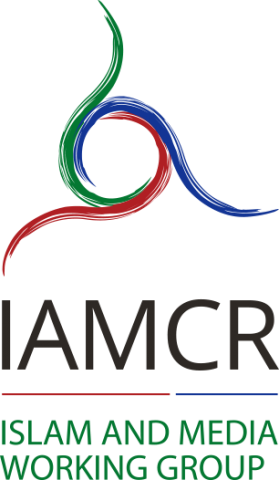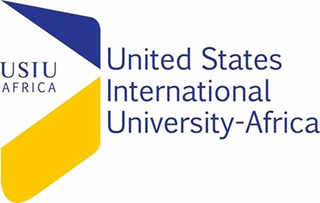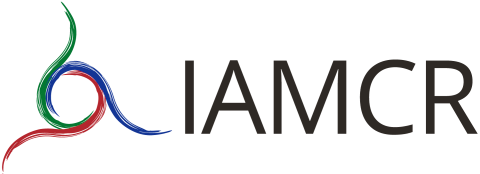Islam and Media Working Group - Call for proposals 2021
The Islam and Media (ISM) Working Group of the International Association for Media and Communication Research (IAMCR) invites the submission of proposals for single papers and multi-paper sessions (the online conference equivalent of a panel in a face to face conference) for IAMCR 2021, which will be held online from 11 to 15 July, 2021. The conference will also have a regional hub in Nairobi, Kenya. Both the online conference and the regional hub will be hosted by the Department of Journalism & Corporate Communication of United States International University-Africa (USIU-Africa) in Nairobi. The deadline for submission is 9 February 2021, at 23.59 UTC.
See the IAMCR 2021 general call for proposals
Themes
IAMCR conferences address a wide diversity of themes defined by our 33 thematic sections and working groups. We also propose a single central theme to be explored throughout the conference with the aim of generating and exploring multiple perspectives. This theme is addressed in plenary and special sessions, and in some sessions of the sections and working groups. Not all submissions have to address this central theme.
The central theme for IAMCR 2021, Rethinking borders and boundaries: Beyond the global/local dichotomy in communication studies, is concerned with how changes in communication theory and practice are challenging our understanding of global and local, creating new identities and discourses, and enabling a hybrid glocalisation, with both positive and negative consequences.
Five sub-themes of this central theme have been identified: The rebirth of populist discourses; Activism and the new global social justice movements; Trends in global media ecosystems; Identity: Gender, class, ethnicity, religion, sexuality; and Communication for development in health, climate change and education. See the complete theme description and rationale here.
Conference model: Online with an African "hub" and global satellite activities
In alignment with the possibilities offered by the COVID-19 pandemic, and with the conference’s main theme, Rethinking Borders and Boundaries, IAMCR 2021’s conference will offer multiple modalities for participation. It will be primarily an online conference but will also have an African “hub” at USIU-Africa, and satellite activities at various points around the globe.The various components of the conference include:
1. Online Conference Papers – Abstracts submitted in response to the section and working groups CfPs will be reviewed by the sections and working groups and accepted authors will be invited to submit short conference papers (1,000 to 4,000 words). These papers will be grouped into sessions and published on the conference website prior to the conference on a platform that will enable discussion the conference.
2. Section and Working Group Online Sessions – IAMCR sections and working groups will curate a number of video sessions highlighting key issues within their thematic areas of specialisation.
3. Flow34 – A stream featuring videos that integrate academic and aesthetic narratives. Proposals for this component will be reviewed by the Flow34 team. Topics can originate from the entire field of Communication and Media Studies. The selected videos will be scheduled and presented on the conference platform.
4. Plenary Sessions – Several plenary sessions streamed from the conference hub at USIU-Africa will feature contributions from around the globe.
5. Special and Partner Sessions – These video sessions will be produced by IAMCR and its partners.
6. Nairobi Hub – In addition to being at the centre of the global online activities, the conference hub, at USIU-Africa, will host a regional face-to-face event (in accordance with the possibilities afforded by the pandemic). The regional event will interact with the global at several moments of the conference.
7. Other Regional/National Hubs – We are currently considering the involvement of other regional and national hubs and will be accepting requests from IAMCR members interested in sponsoring them.
This call for proposals is for the Online Conference Papers.
IAMCR members will have full access to all online components.
In the neo-liberal model of globalization, threats to global economic stability have increased manifold and quietly entered into the media and communication studies. We need to challenge certain structures of power, injustice and de-humanization. What is required is to extend the conversations of communication scholars and researchers to study issues like global corporate power and corruption, the excesses of market-driven democracy, environmental decay and wars over natural resources.
Digital technologies are blurring the boundaries of states and if on one hand, one is getting influenced at the same time one can influence. It is an opportunity to look deep down into the digital ecologies how one can work to improve things in the local contexts and at the same time how it can contribute at the international level. If on the one hand one can be aspired from good practices in other countries it can also show to the world the good practices in local contexts. Important thing is to work to remove injustices and give an opportunity to everyone to grow in their own contexts.
Fundamental teaching about Muslim society is that it should be based on equality and brotherhood, breaking all discrimination on the basis of colour, caste, creed or sex. It looks into all the concerns of a society with a ‘We” approach which means being inclusive in taking decisions to work for a common ideal. Everyone is like a brick in a wall where each brick is supporting the other one. In the consultation process everyone just not have an equal right to speak but is given an equal opportunity to speak with a deep sense of responsibility.
The new global infrastructures such as network technologies have made the many traditional ways of teaching and researching media and communication redundant. The notions of place, space and time have been challenged making it imperative to explore new research angles and methodologies- the calls for the de-Westernization of media and communication studies are already echoing. May be what is required is a dialogical approach between the Muslim World and Western Scholars as a better alternative to asymmetrical discourses of de-Westernization. Media and Communication studies need to deploy effective ways to truly reflect landscape of a globalized and interconnected planet. At the same time we need to be aware that in getting rid of the ethnocentrism burdens of the past, we are not indulging in superficial scholarship, rather grounded in solid realms of local contexts and values.
Islam and Media Group invites papers which examine challenges, opportunities and contributions of the Muslim world in the field of communication studies in this globalization era. Papers which just not give a critique on the existing trends in communication theories and models but also suggest new ways of conceptualizing given phenomenon and prevailing circumstances in the Muslim World are encouraged. Papers with an in-depth reflections on fundamental teachings of Islam and anchoring them in communication studies. Studies which are more inclusive taking into account the regional modernities and non-Western thought with comparative and cross-disciplinary case-studies. Papers focusing on developing local perspectives and models based on Islamic teachings and grounded research. What are the methodological and theoretical challenges Muslim scholarship is facing in the wake of new media technologies? Islam and Media Group invites submissions that critically engage with these issues. In addition, the group welcomes papers and panel proposals addressing the following more general themes that fit in the general call for papers and are relevant to the group:
- Fake news and Islamophobic tendencies in the Western societies
- Media entrepreneurship and socio-political change in Muslim communities
- Social media and Muslim immigrants: Empowerment, and identity challenges
- Digital media and activism in the Muslim World
- Global solidarity and digital world in the Muslim societies
- (Mis) representation of the Muslims
- Digital Media and Muslim women for social change
- Emerging discourses around Muslims and Islam
- Islam in the age of social media
- Algorithms bias and the Islamic issues
- Women representation in the media of the Muslim world: A comparative perspective
- Beyond borders and boundaries: Muslims as global citizens
Guidelines for abstracts
Abstracts submitted to the Islam and Media Working Group should have between 300 and 500 words and must be submitted online via IAMCR's online submission platform. Abstracts submitted by email will not be accepted.
Abstracts should include title, main question or research problem, theoretical framework, method(s) used, and the expected empirical outcomes, if applicable. Abstracts will be evaluated by a double blind review on the basis of: (1) theoretical contribution, (2) significance of the work, (3) methods, (4) quality of writing, (4) paper organization, (5) literature review, and (6) relevance of submitted work to Islam and Media Group and to the overall theme of the conference.
It is expected that authors will submit only one (1) abstract. However, under no circumstances should there be more than two (2) abstracts bearing the name of the same author, either individually or as first author. No more than one (1) abstract can be submitted by an author to the Islam and Media Working Group. Please note also that the same abstract or another version with minor variations in title or content must not be submitted to more than one section or working group. Any such submissions will be deemed to be in breach of the conference guidelines and will be rejected.
If your abstract is accepted, you will need to submit your full conference paper (1,000 to 4,000 words) by 7 June 2021, in order to be included in the programme.
Proposals are accepted for both single papers and multi-paper sessions (the online conference equivalent of a panel in a face to face conference). Please note that there are special procedures for submitting multi-paper sessions. You can find the detailed procedures when submitting your abstract online in the abstract submission system.
The Islam and Media Working Group is pleased to announce awards worth a total of USD 600 for the best three papers presented in the Islam and Media Working Group. The awards will be divided as follows:
- USD 300 for the best paper presented to the Islam and Media Group at the Nairobi conference
- USD 200 for the second place paper
- USD 100 for the third place paper
All papers presented at Islam and Media Working Group sessions in the IAMCR 2021 conference are eligible for the award.
Languages
The Islam and Media Working Group can only accept abstracts in English.
The deadline to submit abstracts is 9 February 2021 at 23h59 UTC.
See important dates and deadlines to keep in mind
For further information about the conference contact nairobi2021 [at] iamcr.org
For further information about the Islam and Media Working Group, its themes, submissions and multi-paper sessions please contact:
Chair: Dr. Bushra Hameedur Rahman- bushrajk [at] gmail.com
Vice-Chair: Dr. Abida Ashraf- abidaeijaz [at] gmail.com
Vice-Chair: Dr. Fatma Elzahraa Elsayed - zahraafat [at] cu.edu.eg


